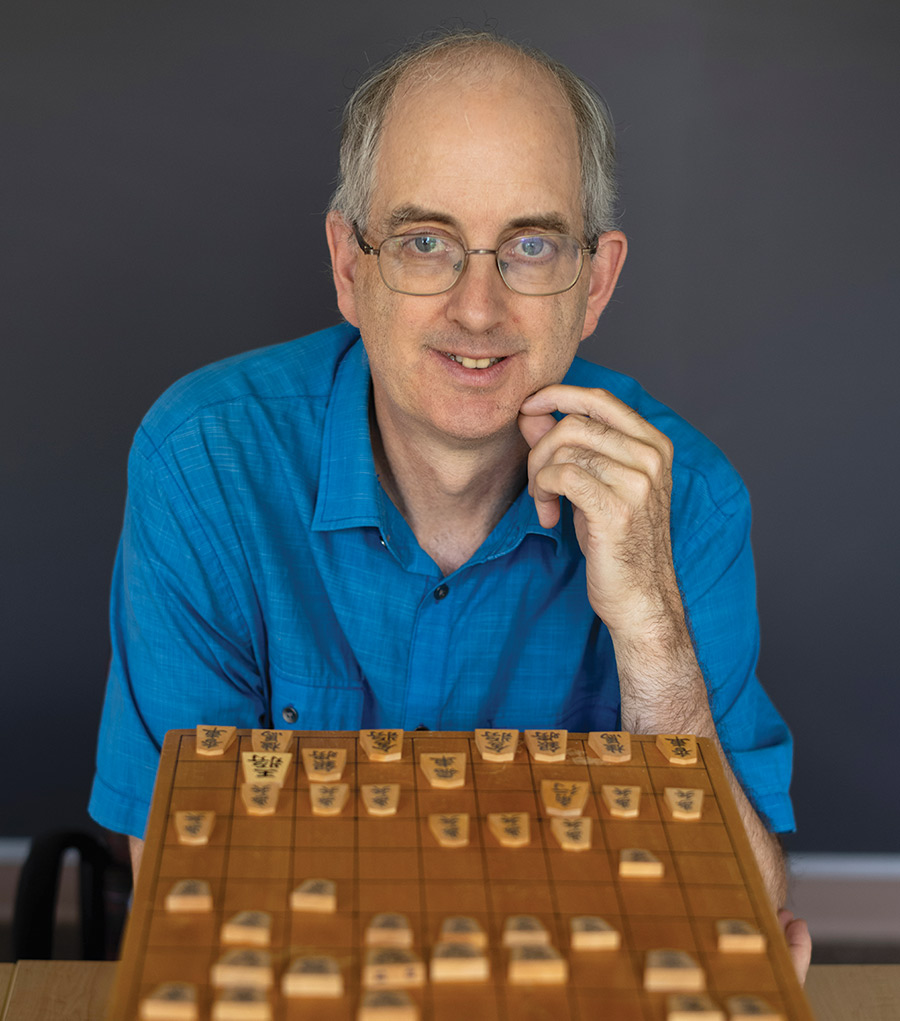A Hidden Gem
here are relatively few opportunities to play shogi, a traditional board game of strategy similar to chess, in the United States. And there may be just one place to play shogi during your undergraduate years — Swarthmore College.
“Shogi is related to Western chess,” says Alan Baker, professor and chair of the Philosophy Department. “The best way of thinking about it is like a cousin of Western chess.”
Baker was introduced to the game while visiting Japan in his mid-20s.

Since Swarthmore already had an established chess club, Baker began bringing his shogi board to chess club meetings before creating a Shogi Club in 2004. It is the longest running college-based shogi club outside Japan.
“I never tried to make it a huge club,” says Baker, who estimates an average of five to 15 active members annually. Swarthmore’s strong Japanese Program also contributes to student outreach.
“I learned about the Shogi Club before I even applied to Swarthmore,” says Sho Glashausser ’26, a Shogi Club member. “It caught my interest because I had played shogi as a kid in Japan, and I was impressed that they had a shogi group on campus. I had never seen that in the U.S.’’
Baker is proud of how the club has evolved into a self-sustaining student-run organization.
“Another evolution is that we sometimes play other Asian board games,” like Go, mahjong, or Xiangqi, adds Glashausser.
Japan was closed off to most of the world for centuries before reintegrating into global life in the 19th century. Although not commonly known, the Japanese delegation that visited the U.S. in 1860 came to Philadelphia and introduced shogi to Americans for the first time.
Swarthmore students have aspirations for their club, including visiting a prominent shogi club in New York City and holding tournaments on campus, expanding on the casual games during weekly meetings.
Baker says the club has appeal because Swarthmore students are “very smart, intellectually curious, and are attracted to quirky, off-beat things.” But there is room to grow. “Only a small circle of players are reaping the benefits,” he says. “Shogi Club is still a hidden gem of Swarthmore.”